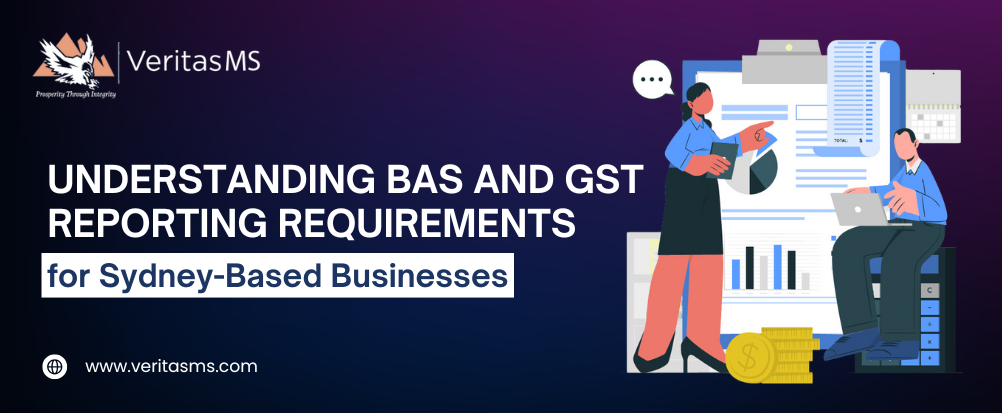For businesses operating in Sydney, staying on top of tax obligations is critical to ensure compliance with Australian Taxation Office (ATO) regulations. Two key aspects of this compliance are Business Activity Statements (BAS) and Goods and Services Tax (GST) reporting. Mismanagement or delays in these areas can lead to financial penalties, making it essential for businesses to fully understand their requirements.
This blog provides a comprehensive guide to BAS and GST reporting, helping Sydney businesses navigate the process effectively.
What is a Business Activity Statement (BAS)?
A Business Activity Statement (BAS) is a form that businesses must lodge with the ATO to report and pay various tax obligations, including:
- GST (Goods and Services Tax)
- PAYG (Pay As You Go) Withholding Tax
- PAYG Income Tax Instalments
- Fringe Benefits Tax (FBT)
The frequency of BAS lodgment—monthly, quarterly, or annually—depends on your business’s annual turnover and the ATO’s requirements.
Understanding GST Reporting
The Goods and Services Tax (GST) is a 10% tax applied to most goods and services in Australia. Sydney-based businesses must:
- Register for GST if their annual turnover exceeds $75,000 or if they wish to voluntarily opt-in.
- Collect GST on taxable sales and issue tax invoices with clear GST components.
- Claim GST Credits for GST paid on business-related purchases.
- Report GST Obligations in their BAS submissions.
Key Steps for Accurate BAS and GST Reporting
- Maintain Accurate Records
Good record-keeping is essential for BAS and GST reporting. This includes maintaining invoices, receipts, and detailed transaction records. Using accounting software can simplify this process and reduce the risk of errors. - Understand Input Tax Credits (ITC)
Businesses can claim credits for GST paid on purchases directly related to their operations. Ensure these transactions are correctly recorded to maximize your claims. - Use the Correct Reporting Method
- Cash Basis: Report GST only when payments are received or made.
- Accrual Basis: Report GST based on the date of invoices, regardless of payment status.
Choose the method that aligns with your business’s financial practices.
- Meet Lodgment Deadlines
Missing BAS deadlines can result in fines and interest charges. Set reminders or automate processes to ensure timely lodgment. - Seek Professional Assistance
BAS and GST reporting can be complex, especially for growing businesses. Partnering with a professional tax service provider ensures compliance and minimizes errors.
Common BAS and GST Reporting Mistakes
- Incorrect GST Calculations: Misunderstanding which items are GST-free or taxable.
- Claiming Ineligible Expenses: Failing to distinguish personal expenses from business-related ones.
- Late Lodgment: Ignoring deadlines, leading to penalties.
- Omitting Adjustments: Neglecting to account for refunds or overpaid GST.
Avoiding these mistakes is crucial for maintaining a healthy financial standing with the ATO.
Why Professional Help Matters
Navigating BAS and GST requirements can be time-consuming and challenging. Partnering with experts like VeritasMS ensures:
- Accurate record-keeping and reporting.
- Optimized GST claims to maximize tax savings.
- Peace of mind with compliance and timely lodgment.
Conclusion
Understanding BAS and GST reporting requirements is essential for Sydney businesses to avoid penalties and maintain smooth financial operations. By adopting best practices and leveraging professional tax services, businesses can ensure compliance and focus on growth.
VeritasMS specializes in BAS and GST reporting, offering reliable and efficient solutions tailored to your business needs. Let us handle your tax compliance so you can concentrate on what you do best—growing your business. Contact us today!

